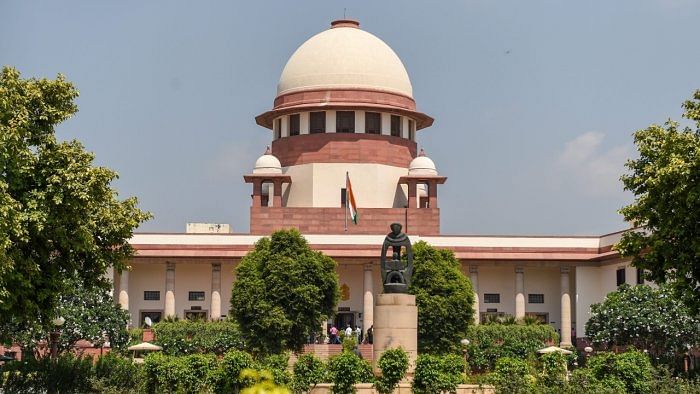
A view of the Supreme Court.
Credit: PTI Photo
When the Supreme Court dismissed a petition seeking a two-year cooling-off period for retired judges before they accepted political appointments, it did not dismiss the idea altogether. The court said that “the issue whether a retired judge should accept any office or not has to be left to the conscience of the judge concerned, or any law in this regard brought into force” but cannot form a subject matter of directions under Article 32. It also said it can’t go into the matter of former judges becoming members of parliament. The petition was filed by the Bombay Lawyers’ Association, and a similar petition had been dismissed in the past, too. Though the court called the petition frivolous, the matter raised by it is serious.
By observing that the issue should be left to the conscience of the judge or decided in accordance with a law which is yet to be made, the court has acknowledged that there is an issue. It has been recognised as such for long. There have been cases of judges accepting governorships, membership of parliament and other positions of power. Some of these positions have political functions to perform. When judges accept such positions after retirement, it is likely to be seen as a reward or favour from the government. That affects the credibility of the judiciary, which should not only be independent, neutral and non-partisan but should also be seen to be so. The architect of the Constitution, B R Ambedkar, had disfavoured a cooling-off period for judges because he said there were only few cases of interest for the government in courts then. But that is not the case now, and the government is the biggest litigator. Judges have to sit in judgement over many cases where governments’ interests, including political interests, are involved. The acceptance of a position by the judge is likely to attract adverse attention to his or her judgements. Two former CJIs, Justice Y V Chandrachud and Justice R S Pathak, have said that some judges wrote judgements with an eye on post-retirement sinecures. That is why a cooling-off period, at the very least, has been suggested, in the interest of the judiciary’s credibility.
Leaving the matter to the conscience of a judge is not a satisfactory solution because conscience works differently for different people. As the petition pointed out, the government will not bring about legislation on the matter because it is an interested party. The court has rejected petitions seeking orders on the matter, but it can frame a code of conduct to serve as a guide. It should be noted that a former CJI, Justice R M Lodha, had suggested a cooling-off period of at least two years for judges.